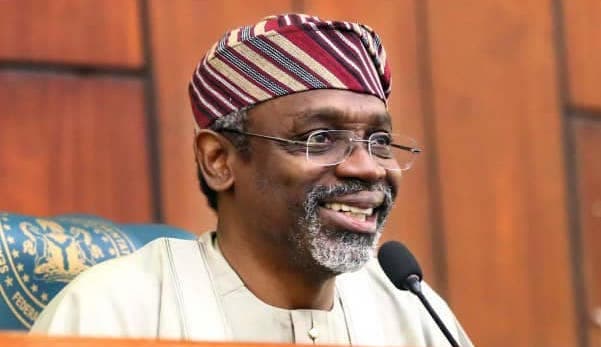ASUU’s Salary Slash: Gbajabiamila Waves Olive Branch
The House of Representatives’ Speaker, Femi Gbajabiamila has appealed to the members of the Academic Staff Union of Universities (ASUU) to remain calm in view of their latest outcry over the reported half payment of their salaries by the Federal Government.
In a statement he signed in Abuja on Monday, the speaker noted that efforts to find lasting solutions to the concerns frequently raised by ASUU were on, noting that President Muhammadu Buhari has indicated interest to wade into the latest concerns raised by the union.
“When the Academic Staff Union of Universities (ASUU) called off their industrial action three weeks ago, it meant that academic activities could resume in our nation’s public universities, and students could return to their academic pursuits after the prolonged interruption. This decision was rightly heralded nationwide as the correct decision.
“Since then, the executive and the House of Representatives have worked to address the issues that led to the strike. We are currently working on the 2023 Appropriations Bill, which includes N170 billion to provide a level of increment in the welfare package of university lecturers. The Bill also includes additional N300 billion revitalisation funds to improve the infrastructure and operations of federal universities.
“Furthermore, the House of Representatives has convened the Accountant General of the Federation (AGF), the Academic Staff Union of Universities (ASUU) and other stakeholders to facilitate the adoption of elements of the University Transparency and Accountability Solution (UTAS) into the Integrated Payroll and Personnel Information System (IPPIS). This effort is being supervised by the Chairman of the House Committee on Tertiary Education, Rep. Aminu Suleiman,” Gbajabiamila said.
He noted that the position taken by the Executive that it was not obligated to pay salaries to lecturers for the time spent on strike is premised on the law and the government’s legitimate interest in preventing moral hazard and discouraging disruptive industrial actions.
“Nonetheless, interventions have been made to explore the possibility of partial payments to the lecturers. We look forward to a favourable consideration by His Excellency, President Muhammadu Buhari, GCFR who has manifested his desire to what is prudent and necessary to resolve all outstanding issues.
“Implementing meaningful change takes time, especially when appropriations and modifications to systems such as IPPIS are required. Therefore, I urge all parties to be patient and grant each other the presumption of goodwill to the extent necessary to achieve our shared objectives. This is not a time for political brinkmanship.
“There is no more pressing objective than to preclude the possibility of further disruptions to the academic calendar of the universities. We must prevent this possibility by all means, as these disruptions risk the promise and potential of our nation’s youth,” the Speaker appealed.
He also restated his commitment to provide sustainable reforms to the Nigerian tertiary education system.
According to him, the challenges facing Nigerian tertiary education are multifaceted hence the need for all stakeholders to come together and proffer solutions.
The Speaker is convening a national tertiary education summit during which stakeholders would come up with ways to make things better in the sector.
Gbajabiamila said three weeks ago, he called for a national conversation on the substantive reforms required to address the underlying issues bedevilling public tertiary education in Nigeria.
He added:”To that end, the House of Representatives is convening a National Summit on Tertiary Education Reform. We have called for papers and memoranda from members of the public. The submissions we receive and expert presentations at the Summit will inform our policy recommendations and actions.I urge all citizens and stakeholders to participate in this crucial effort to reinvent our public tertiary institutions into respected citadels of learning.”






